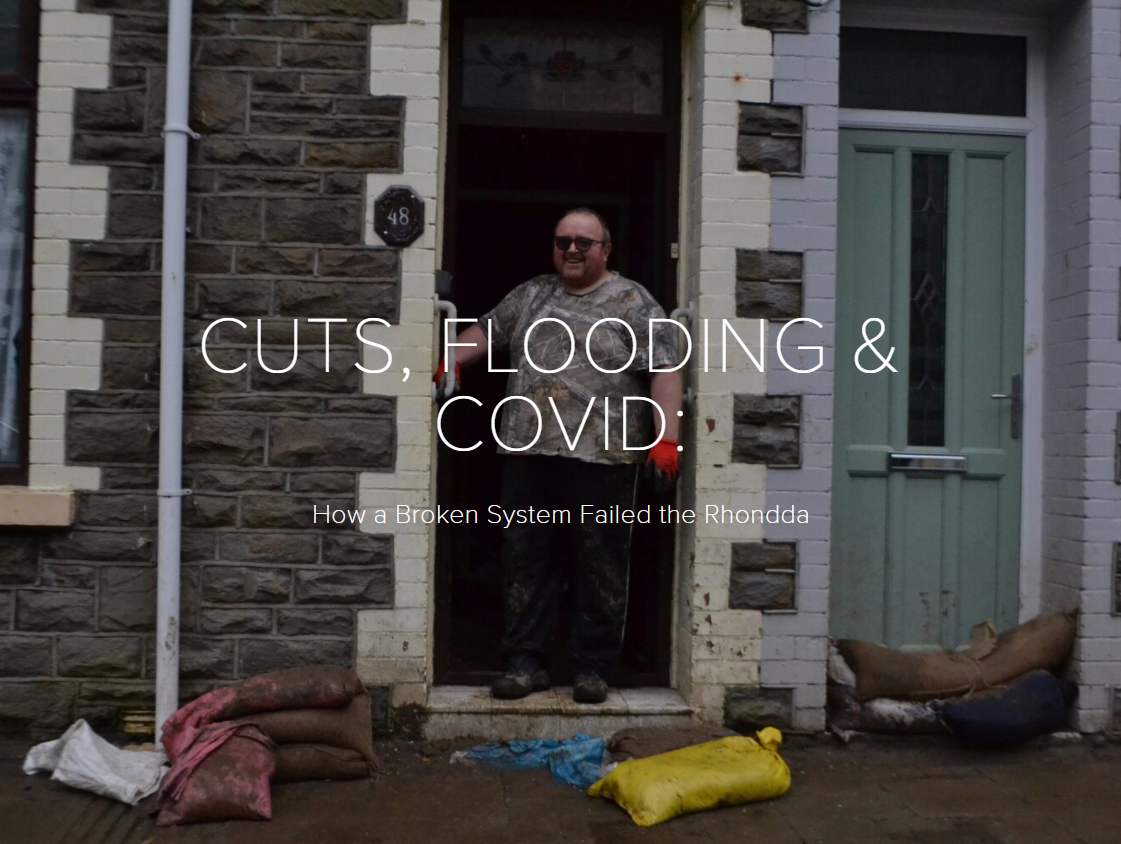
How Taxpayer-Funded Forests In Mid Wales Inflate Carbon Targets – Before Being Logged For Profit
• voice.wales has found that new forests being planted by large private companies using Welsh Government cash are set to chop them for profit shortly after the net zero by 2050 goal.
• Woodland Investment Grants rules and regs mention specifically that officials will allow subsidised forests to be chopped down around 40 years after planting, just when the tress will be absorbing the most carbon from the atmosphere.
• The plantations are being used for carbon offsetting, a practice seen as enabling the most polluting firms to continue emitting carbon into the atmosphere.
• Deputy Minister for Climate Change Lee Waters, the MS who has spearheaded the grants, has not responded to a request to comment.
Large swathes of land have been bought up across mid-Wales by faceless megacorporations for the planting of trees – but how do they make their money?
A new government grant scheme funds for-profit businesses to plant trees and encourages them to log the forests when they mature, all whilst still contributing towards Welsh Government net zero targets.
One of these companies is called Foresight, which has its swanky offices situated in the Shard in central London. They describe themselves as a “leading infrastructure and private equity investment manager”.
Foresight have dedicated their time to setting up a firm to focus solely on tree-planting, Foresight Sustainable Forestry Company Plc, and is seeking to float the new business with an initial public offering on the London Stock Exchange of £200 million.
The company has been buying up land, with four farms in Wales already already in their pocket, to plant forests to generate carbon credits to sell on the market to firms looking to pollute an extra bit more after they’ve reached their government-mandated allowances.
Richard Kelly, co-founder of Foresight Forestry, said in an ad for investors that their clients can enjoy the benefits of “the creation of carbon credits from new forest planting schemes.”
These credits are bought by big businesses, like airlines and energy companies, to ‘offset’ their emissions. Foresight keeps their client list close to their chest, but we know that by advertising the creation of carbon credits from their projects they act as a laundrette for the dirty companies who want to greenwash their activities and appeal to eco-minded consumers.
The system has allowed even oil companies to claim that their businesses are green by buying carbon credits in bulk. In April Occidental Petroleum, one of the largest oil producers on the planet, had allegedly bought so many credits generated by companies like Foresight that it could claim a two-million-barrel shipment was completely carbon neutral.
The whole system lays bare the way in which any mitigation of the climate crisis will only be conducted through the prism of the free market, and will be built around the need to maintain company viability and profits above the need to cut carbon emissions now. Welsh Government appears to be assisting in this.
Foresight has already admitted that they will seek handouts from the Welsh Government, which ministers have advertised in the form of the Woodland Investment Grant (WIG).
The projects of private companies that claim assistance from Government investment schemes contribute to forestry figures that measure the Welsh Government’s progress towards their afforestation goals.
Deputy Minister for Climate Change Lee Waters announced in July that Wales needs to plant 86 million trees over the next nine years to hit their goal of being net zero emissions by 2050, telling the press at the time that the Woodland Investment Grant is to be used “to support this ambition”.
But there’s a gaping hole in the plan: These forests, funded by taxpayer money, might barely survive past 2050.
The “attractive investment characteristics” are advertised by the company in a slick PR video that shows stock images of timber-yards alongside beautiful forests.
Foresight isn’t just making their money from generating carbon credits, they also intend to log their forests for timber after around 40 years, which would mean that their forests would only exist just a decade after the net zero target should be met.
voice.wales has delved into the rules and regulations surrounding the Woodland Investment Fund and has found that the Welsh Government in fact encourages the new forests to be logged when they mature.
The rules booklet reads: “National Forest woodlands should aim to maximise the benefits to people, nature and the wider environment through the creation of multi-purpose sites.” This could include “large scale commercial timber harvesting businesses supplying more home grown timber,” alongside “growing biodiversity.”
Foresight Forestry co-founder Kelly said: “It takes 40 years for newly planted forests to mature for harvesting.” This would mean forests being funded by the Welsh Government are likely to disappear just decades after the 2050 goal.
At the same time, the rate at which the tree absorbs carbon changes throughout its stages of growing. A tree’s absorption rate whilst it is a sapling is significantly lower and it can take several years for a new tree to exit this phase. Research shows that when a tree reaches maturity it is better able to store carbon and slow climate change.
Lee Waters MS did not respond to a request for comment.



1 Comment
Comments are closed.